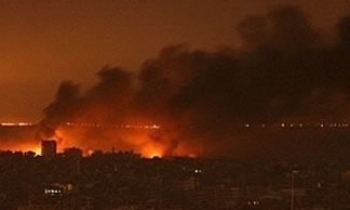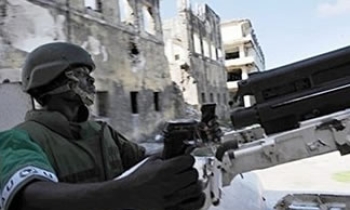Many words have been traced on newspaper pages and debates exchanged at different forums about the recently announced ordinance bringing some amendments in the Communication Act. It is amazing that everyone, including many journalists who don’t belong to any newspaper or who never write, seem to be experts on the issue. In fact even a foreign government has entered into the fray!
Unfortunately, this writer has not been able to get a copy of the amended Act. But after asking around, it has been revealed that most others too have not seen the new government law on media policies. So Yours Truly feels the grounds are open for anyone to put in their two bit on this topic.
First of all, even if we are to go by what has been written in some newspapers about the changes, then what is wrong with them? Isn’t it good to put the "house" of the media sector in order? Or should it be allowed to go about in an unbridled and unmanaged manner for ever?
Meanwhile, a question often repeated by this writer arises here, what does press freedom actually mean? Does it mean that the media can do whatever it wants with no restraint from any sector, including the courts? Whom would this benefit? One feels only a few media people and others, with a vested interest in accomplishing their own twisted objectives.
The media has been used and abused here time and again. This has not been beneficial to the image of the country’s media sector, to the country or the gullible audience. Sometimes journalists have been used with their own consent and sometimes without any knowledge that they were acting merely as pawns in a game of chess. And sometimes individuals have been victimised for purposes of their own.
In such a scenario, if the new Communication Act has provisions to correct such fallacies in the Nepalese media sector, then so be it. Only the guilty should be afraid such a law. The real professional journalists who want to see a clean and healthy journalistic sector should have no fear about legal provisions that have been brought to clean up the house.
Moreover, Ashok Tiwari, a former member of the National Council, has revealed that the new Ordinance that has been announced to bring some changes in the Communication Act is based on a draft prepared by a Parliamentary Sub-committee some five years ago. Tiwari was a member of the committee and he also informed that the Federation of Nepalese Journalist (FNJ), all the political parties and other related sectors of the media too were involved in the preparation and approval of the draft and its fundamentals.
This has exposed the double standards of the political parties and also some journalists who are up in arms against the present Ordinance. It seems for this lot, treaties, agreements, laws and even elections are good only when they are in power. Otherwise, they are "unconstitutional".
It is an irony that even the government of India was pressured to make a statement on the issue, maybe by its stooges in the media and also political parties. It would not be irrelevant here to question how would the Indian government like it if HMG was to make a similar comment when India makes some changes in its internal laws?
Have any of our "truly democratic" media people or political leaders have anything to say on such ham-handed interference? No, they are only "willing to give their lives" in protest against other purposes, like when some good is going to be introduced in the country’s media sector. Issues like national integrity, sovereignty and foreign interference don’t fall into their priority list!
Here, mention also must be made of some leaders in the legal profession, who have been trying to make a political issue out of every single decision the government has taken. It is people like them, who have contributed tremendously in politicising and thus weakening highly professional institutions through their bias and peep-hole sight interests. Perhaps, if only professional institutions had been left to function without any political interference in the past, maybe the country would not be in the present mess it is in.
But to come back to the new Ordinance, this writer fully believes that it is high time some sort of order is brought in the Nepalese media sector. This sector has been moving ahead in an uncontrolled manner, with only a few benefiting from this situation. Quite naturally, these few are afraid they will lose the tremendous power they had been able to wield when no one, including the government is in control.
If one is to look back, there are thousands of victims of the media, including individuals, who have not been able to do anything about the injustice done onto them. If we really have an effective media law, such a situation will be corrected to a large extent.
Meanwhile to all those foreign organisations and individuals who have cried hoarse about the lack of press freedom in Nepal, let us ask, "Should Nepal have only press freedom and shouldn’t it have equivalent laws to ensure that press freedom is used and not abused?"
Western nations who don’t understand the ground realities in Nepal will have to be accountable if they only demand for "democracy and freedom", without any back-up to sustain these idealistic goals. Even now, individuals and organisations are being used indirectly by these preachers, by providing them with funds and "exposure" to the outside world. Is democracy and freedom meant only for these people? Will Nepal truly be democratic and free only when certain individuals are in power and when certain media houses are free to do or write whatever they want or are told to write? Has any thought been given whether this will benefit the majority of Nepalese and Nepal?
In the same manner, in the question of press freedom also, the entire Nepalese media sector should stand to gain from it. It should not be only a handful of people, who are up in arms against efforts to bring improvement in the media law, not for the media sector’s interest, but for their own vested reasons which benefits them only.
(The views expressed in the commentary are fully that of the author)









